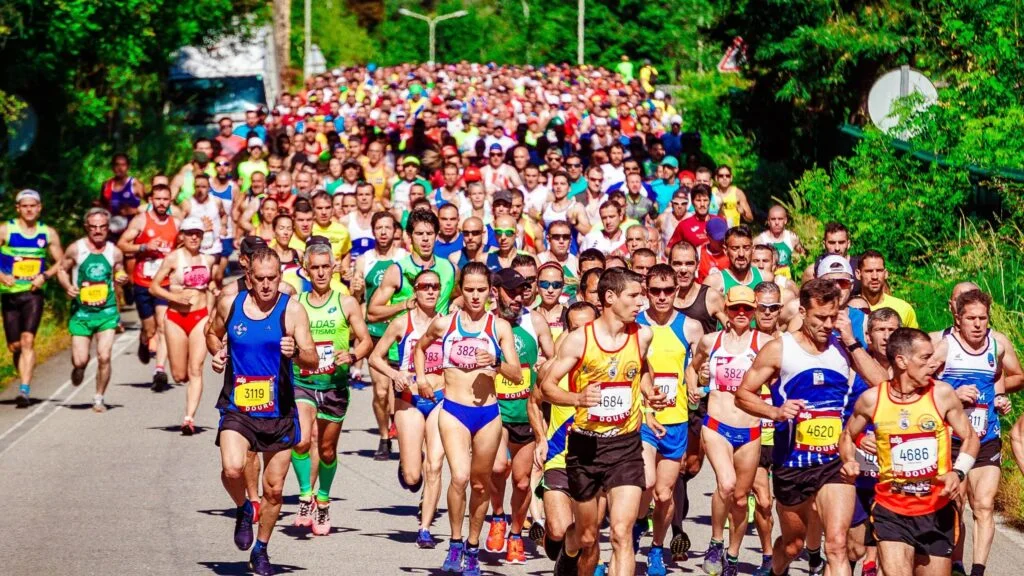A marathon is a long-distance running race that is 42.195 kilometers long, which is 26 miles and 385 yards. Legend has it that the Greek fighter Pheidippides ran from the battlefield of Marathon to Athens to tell the people there that the Greeks had won a battle against the Persians in 490 BCE. This is where the event got its name.

At the 1908 Olympics in London, the path was widened to include the distance from Windsor Castle to White City Stadium so that the race could end in front of the royal family’s viewing box. This set the standard distance for modern marathons.
Since then, the marathon has grown into one of the most prestigious and well-known running events. Now, big marathons are held in places all over the world.
In what kinds of races are marathons held?
There are different kinds of marathons based on things like the course, the geography, and the reason for the race. These are some popular types of marathons:
Road marathons:
These are the most popular type of marathon race, and they usually happen on streets or paved roads in cities. People from all over the world run in road races, and well-known events like the Boston Marathon, New York City Marathon, and London Marathon are common.
Trail Marathons:
These races are held on off-road paths, which are often in beautiful but difficult places like forests, mountains, or wilderness. The rough terrain and changes in elevation make these runs different from road marathons and require different training.
Extra-Long Marathons:
These are runs that are longer than the normal marathon, which is 42.195 kilometers (26.2 miles). They can be as short as 50 kilometers (31 miles) or as long as 100 miles or more. Ultra marathons are known for being very hard on the body and mind. They can be held on roads, tracks, or other surfaces.
Virtual Marathons:
These became more popular, especially during times when people couldn’t go to events in person, like during the COVID-19 outbreak. People who are running the marathon do it on their own, using GPS devices or smartphone apps to keep track of their time and distance, and then they post their results online.
Charity Marathons:
A lot of marathons are put on as charity events to help raise money for certain groups or causes. People who take part often raise money through donations or sponsorships. The money they make goes to charity projects.
While these are some examples of different marathon races, there are many more that can happen depending on where the race takes place, how the course is designed, and how the event is organized.









Comments are closed.